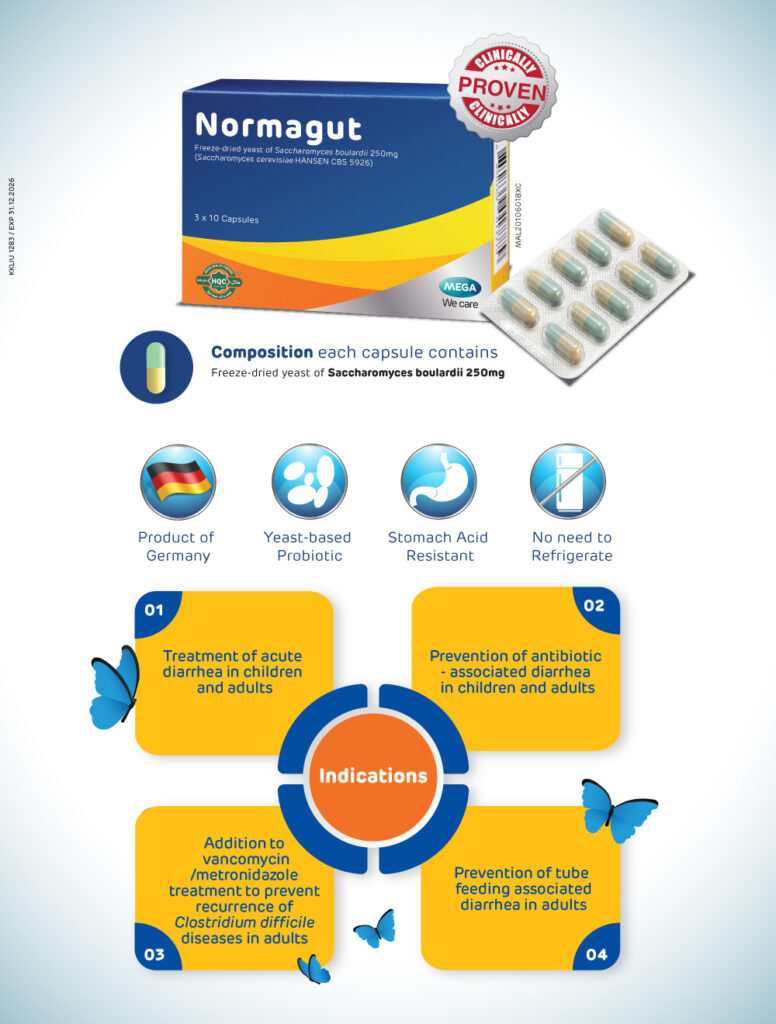
Probiotics And Antibiotic Resistance: The Connection
26 Aug, 2025
What is Antibiotic Resistance?
Antibiotic resistance is a growing global health crisis, where bacteria evolve to survive exposure to antibiotics that would normally kill them or inhibit their growth. When bacteria become resistant to antibiotics, infections that were once easily treatable can become difficult to manage, leading to prolonged illness, higher medical costs, and increased mortality rates.
Antibiotic resistance develops over time as bacteria are exposed to antibiotics, often due to overuse, misuse, or incomplete courses of treatment. This has raised concerns about the effectiveness of antibiotics in treating infections and has underscored the need for alternative approaches to managing infections, including the potential role of probiotics in supporting treatment outcomes.
The Role of Probiotics in Gut Health
Probiotics are live microorganisms, often referred to as “good bacteria,” that provide health benefits when consumed in adequate amounts. They are primarily known for their role in supporting gut health. Antibiotics, while effective in killing harmful bacteria, also disrupt the balance of gut flora, killing beneficial bacteria along with the harmful ones. This disruption can lead to side effects like diarrhea, bloating, and increased susceptibility to infections.
Probiotics help restore this balance by replenishing beneficial bacteria in the gut, improving digestion, and supporting immune function. The importance of maintaining a healthy gut microbiota cannot be overstated, as the gut plays a key role in digestion, nutrient absorption, and immune health.
How Probiotics Help Combat Antibiotic Resistance?
Probiotics may help combat antibiotic resistance in several ways:
- Restoring gut flora balance
Antibiotics often wipe out both harmful and beneficial bacteria in the gut, which can lead to a state called dysbiosis, where harmful bacteria outnumber beneficial bacteria. Probiotics help restore the balance of gut microbiota, which is essential for proper digestion and immune function. By restoring healthy gut flora, probiotics can reduce the risk of infections and improve the effectiveness of antibiotics. - Inhibiting the growth of resistant bacteria
Some probiotics have been shown to inhibit the growth of antibiotic-resistant bacteria. For example, certain strains of Lactobacillus and Bifidobacterium can prevent the overgrowth of harmful bacteria like Clostridium difficile (C. diff), which often causes antibiotic-associated diarrhea. By promoting the growth of beneficial bacteria, probiotics create an environment in the gut that is less favorable for the survival of resistant pathogens. - Supporting antibiotic activity
Some research suggests that probiotics can enhance the activity of certain antibiotics by reducing the negative effects of antibiotics on gut microbiota. For instance, probiotics may help prevent the colonization of harmful bacteria that could otherwise compromise the effectiveness of antibiotic treatment. This synergistic effect can improve treatment outcomes, particularly in patients receiving prolonged antibiotic therapy. - Reducing the impact of antibiotic-related side effects
Probiotics can help mitigate the side effects of antibiotics, such as diarrhea and nausea, which are often a result of gut flora imbalance. By restoring beneficial bacteria, probiotics support gut health, enhance nutrient absorption, and prevent disruptions in gut motility, thus improving the overall tolerance of antibiotics.

Probiotics and Antibiotic Efficacy
While probiotics alone cannot cure infections, they play a crucial role in supporting the body’s response to antibiotic treatment. Probiotics help ensure that the gut remains balanced during antibiotic use, which can improve the body’s ability to fight off infections and reduce the risk of complications associated with antibiotics. Some studies suggest that probiotics may enhance the efficacy of antibiotics, especially in preventing or treating infections like Clostridium difficile or antibiotic-associated diarrhea (AAD).
Moreover, when probiotics are taken alongside antibiotics, they help preserve the integrity of the gut lining and immune function, ensuring that the body is better equipped to respond to the infection being treated.
The Impact of Probiotics on Immune Function
The gut is home to a large portion of the body’s immune system, known as the gut-associated lymphoid tissue (GALT). Probiotics support the immune system by stimulating the production of immune cells, enhancing the gut barrier function, and promoting a balanced immune response.
By enhancing the gut’s immune function, probiotics may help prevent infections caused by antibiotic-resistant bacteria and reduce the impact of infections that could otherwise be difficult to treat due to resistance. Probiotics also help regulate the immune system to ensure that inflammation is controlled, preventing excessive immune responses that could lead to autoimmune issues or chronic inflammation.
Choosing the Right Probiotic Strains
Not all probiotics are created equal, and the effectiveness of probiotics in combating antibiotic resistance depends on the strain used. Some of the most studied and beneficial strains include:
- Lactobacillus acidophilus: Known for its ability to restore gut flora balance and improve digestion.
- Bifidobacterium bifidum: Supports immune health and helps reduce gastrointestinal discomfort.
- Saccharomyces boulardii: A yeast-based probiotic that is resistant to antibiotics and effective in preventing antibiotic-associated diarrhea.
- Lactobacillus reuteri: Helps reduce gut inflammation and supports immune function.
Consulting with a healthcare provider is crucial in selecting the right probiotic strain for your specific needs, especially when considering its role alongside antibiotic therapy.
Antibiotic resistance is a growing concern, but probiotics may help by restoring gut balance, supporting immune function, and improving antibiotic efficacy. Probiotics help combat antibiotic resistance by replenishing beneficial bacteria, inhibiting harmful bacteria, and enhancing the activity of antibiotics. Probiotics can reduce the side effects of antibiotics, improve treatment outcomes, and support gut health. Choosing the right probiotic strains, such as Lactobacillus acidophilus, Bifidobacterium bifidum, and Saccharomyces boulardii, can provide significant health benefits.

References:
Zavišić, G., Popović, M., Stojkov, S., Medić, D., Gusman, V., Jovanović Lješković, N., & Jovanović Galović, A. (2023). Antibiotic Resistance and Probiotics: Knowledge Gaps, Market Overview and Preliminary Screening. Antibiotics (Basel, Switzerland), 12(8), 1281.
Imperial, I. C., & Ibana, J. A. (2016). Addressing the Antibiotic Resistance Problem with Probiotics: Reducing the Risk of Its Double-Edged Sword Effect. Frontiers in microbiology, 7, 1983.
Li T, Teng D, Mao R, Hao Y, Wang X, Wang J. A critical review of antibiotic resistance in probiotic bacteria. Food Res Int. 2020 Oct;136:109571.
Articles that might interest you





